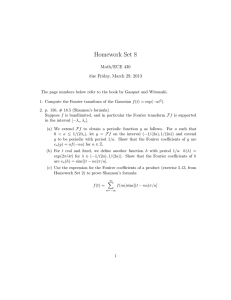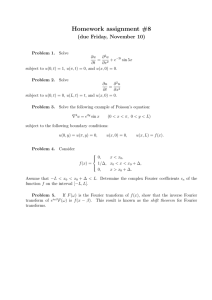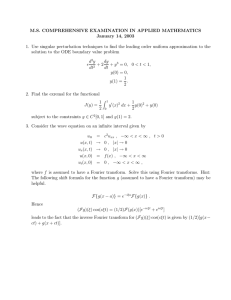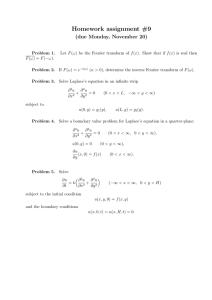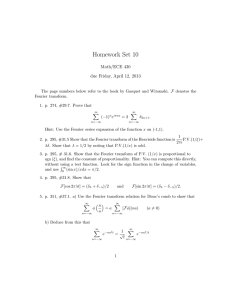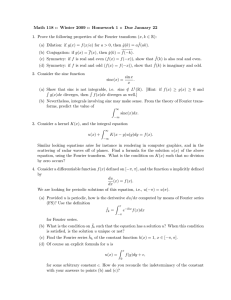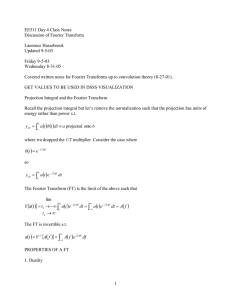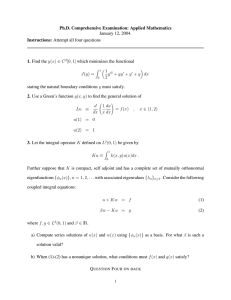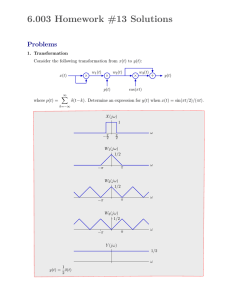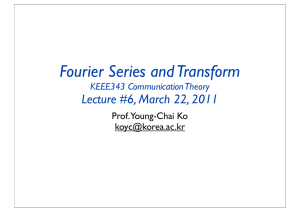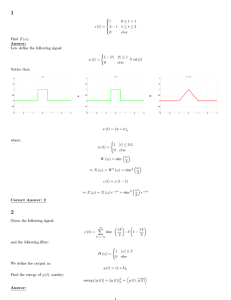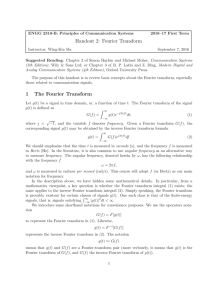Microsoft Word (.docx)
advertisement
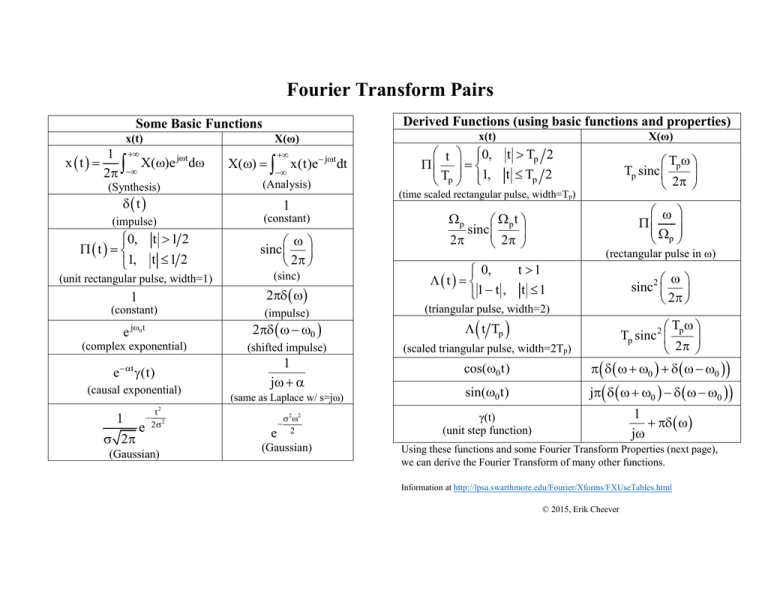
Fourier Transform Pairs Derived Functions (using basic functions and properties) Some Basic Functions x(t) xt X(ω) 1 X()e jt d 2 (Synthesis) X() x(t)e jt dt (Analysis) t 1 (impulse) (constant) 0, t 1, t 1 2 t 1 2 sinc 2 x(t) t 0, Tp 1, X(ω) t Tp 2 t Tp 2 (time scaled rectangular pulse, width=Tp) p p t sinc p 2 2 (rectangular pulse in ω) 1 2 t 1 0, t 1 t , t 1 (constant) (impulse) (triangular pulse, width=2) (unit rectangular pulse, width=1) (sinc) e j0 t 2 0 t Tp (complex exponential) (shifted impulse) (scaled triangular pulse, width=2Tp) et (t) 1 j cos(0 t) (causal exponential) (same as Laplace w/ s=jω) t2 2 1 e 2 2 (Gaussian) e 2 2 2 (Gaussian) T Tp sinc p 2 sinc2 2 T Tp sinc 2 p 2 0 0 sin(0 t) j 0 0 γ(t) (unit step function) 1 j Using these functions and some Fourier Transform Properties (next page), we can derive the Fourier Transform of many other functions. Information at http://lpsa.swarthmore.edu/Fourier/Xforms/FXUseTables.html © 2015, Erik Cheever Fourier Transform Properties Name Linearity Time Scaling Time Delay (or advance) Time Domain x1 (t) x 2 (t) xt a Frequency Domain X1 () X 2 () aX a f (t a) X()e ja Complex Shift Time Reversal Convolution x(t)e j0 t x(t) x(t) * h(t) X( 0 ) X() X()H() Multiplication x1 (t)x 2 (t) 1 X1 () * X 2 () 2 d n x(t) dt n ( j) n X() x()d 1 X() X(0)() j d jn n X() d Differentiation Integration Time multiplication Parseval’s Theorem Duality t n t x(t) Energy 2 x(t) dt Energy 1 2 X() d 2 X(t) 2x() 1 X( t) 2 x() Symmetry Properties x(t) X(ω) X() X* () Re X() Re X() x(t) is real Im X() Im X() X() X() X() X() Real part of X(ω) is even, imaginary part is odd X() X() x(t) real, even Im X() 0 X(ω) is real and even x(t) real, odd Re X() 0 Im X() Im X() X(ω) is imaginary and odd Relationship between Transform and Series If xT(t) is the periodic extension of x(t) then: cn 1 X n0 T Where cn are the Fourier Series coefficients of xT(t) and X(ω) is the Fourier Transform of x(t) Furthermore XT 2 cn n0 n
